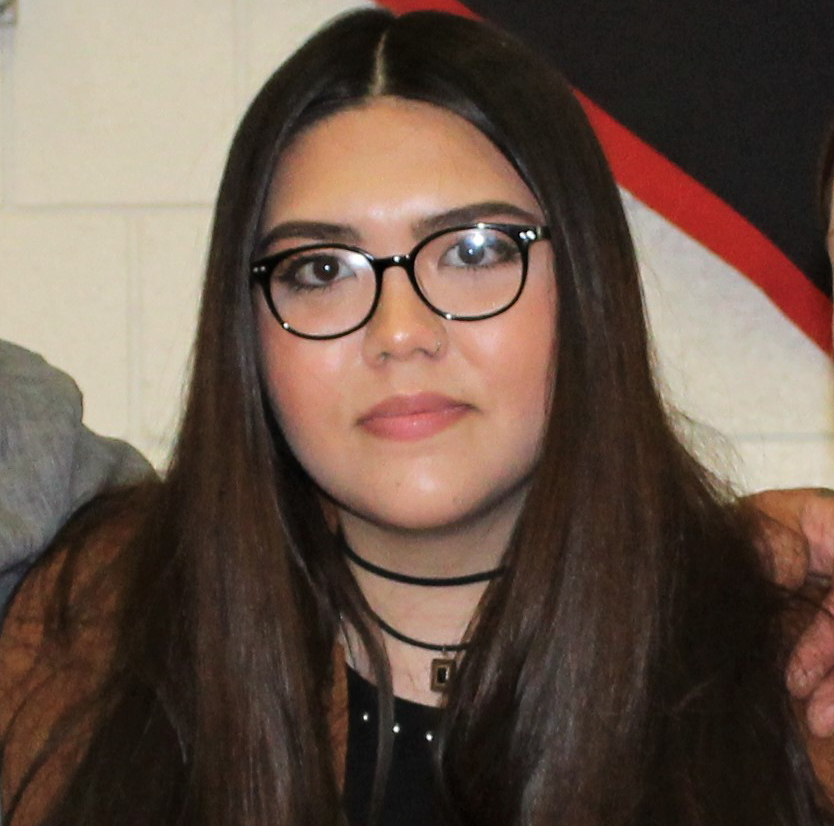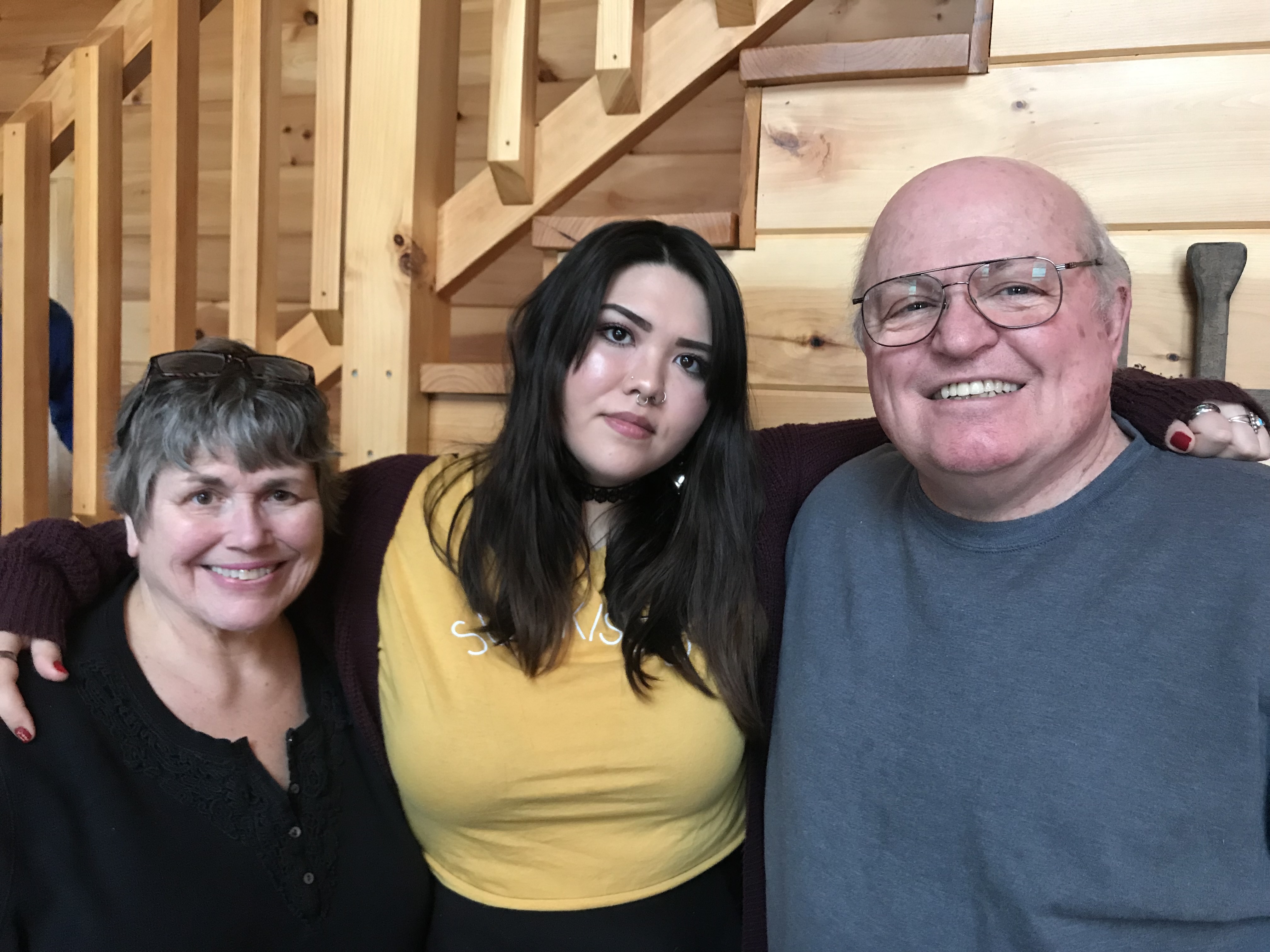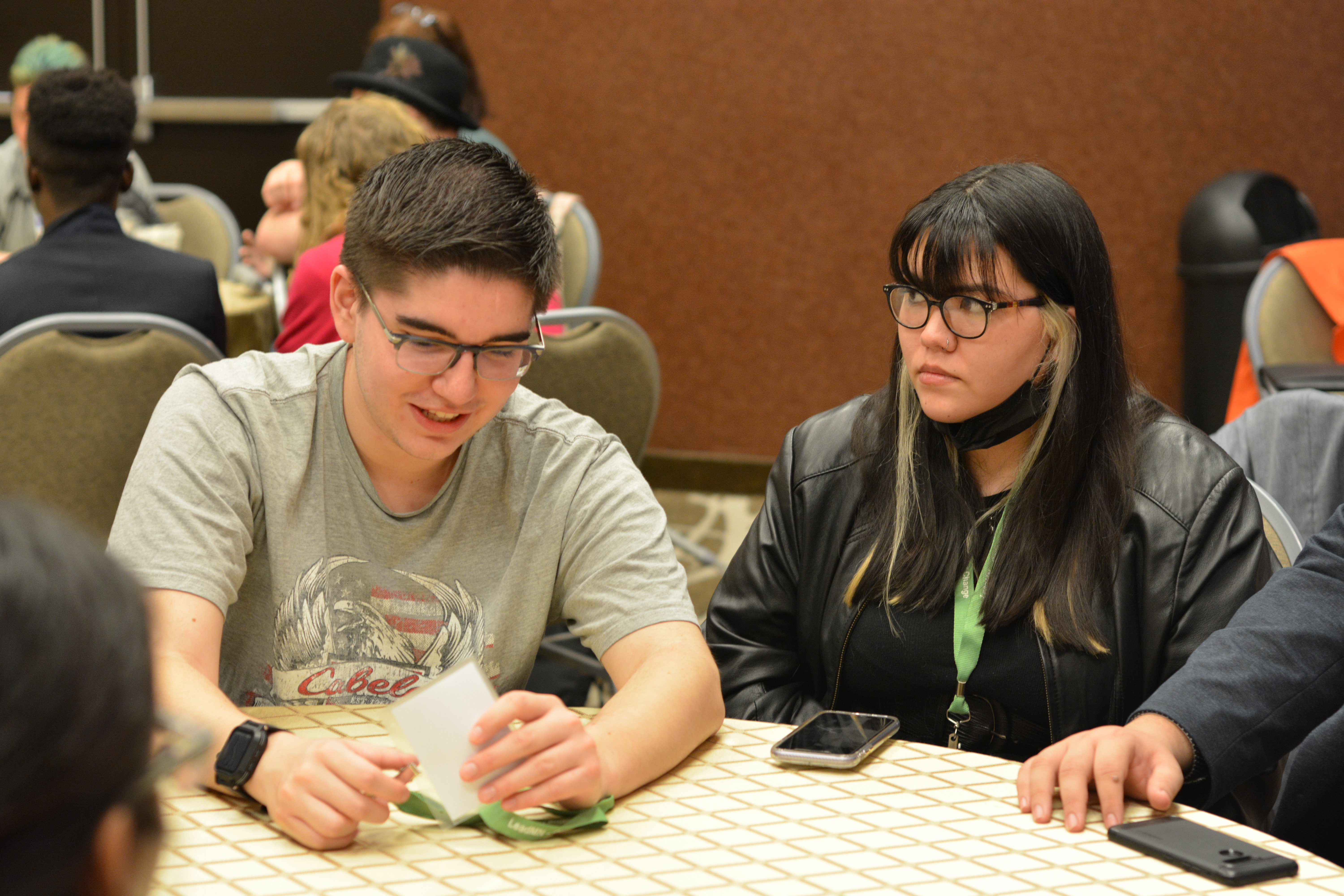“College was never in the plans for me. I didn’t even think I was going to graduate high school. I graduated high school a year late as my addiction was pretty severe and I wasn’t getting the support needed.”
Alex Trebesch

Alex Trebesch is a student at Central Lakes College.
* trigger warning: addiction, depression *
Beginning her college journey
Attending college wasn’t a foregone conclusion for Alex Trebesch. After struggling with substance abuse and addiction throughout her teenage years, she wasn’t sure she would finish high school.
Now, nearly five years into her own recovery, Alex is using her experience to advocate for others and obtain a degree in psychology. She moved up to the Brainerd Lakes area a year and a half ago to be close to her grandparents, and began the psychology transfer pathway program at Central Lakes College. Ultimately, she wants to become an addiction counselor to support others going through what she experienced.
With the support of a TRIO advisor, Alex applied for FAFSA and was able to have all of her tuition covered through grants and scholarships. Still, she faced barriers in filling out the necessary forms. Her mother had passed away and her father was not part of her life - so she needed to file as an independent. In order to do this, she had to get testimonials from friends, family, and a mental health professional proving her independence, which was an extra burden.
“Having to prove over and over again that I’ve struggled in life - just to get a college education - doesn’t seem fair to me.”
Alex Trebesch

Alex and her grandparents.
Losing the person who meant the most
Although Alex was able to cover tuition with scholarships and financial aid, other expenses were challenging to cover. Between housing, healthcare, pets, car troubles, and other living expenses, she needed to maintain a part-time job to afford it all, which is no simple task while taking full-time classes as well. At times she feared she would need to drop out to work full-time to cover her expenses. Still, Alex managed to make ends meet until tragedy struck.
Last spring, while Alex was spending time with her grandfather, he suddenly suffered a massive heart attack and passed away. Her grandfather had been a parental figure to her, and the loss became nearly unbearable. Heartbroken, Alex sank into a state of depression - finding it difficult to eat and get out of bed for days at a time.
“The last thing on my mind was school, and I was very close to dropping out. I didn’t know who to turn to - I felt like my instructors weren’t going to understand, or maybe they would think I was lying to get out of coursework. I just felt really alone.”
Alex Trebesch
Fortunately, many of Alex’s instructors were understanding, and she credits their flexibility and support as major factors as to why she was able to persist with classes through her grief.
“One particular instructor had a lot of empathy for my situation and was very understanding of my late assignments. He allowed me to have flexibility on deadlines, and provided emotional support, too. His support, and the understanding of my other instructors - that’s what kept me in college. If I didn’t have that, I wouldn’t have stayed enrolled. And just imagine if there were more resources available at colleges, how much easier would it be for students to make the decision to stay?” - Alex Trebesch
Persevering and advocating
Still, Alex didn’t let her situation keep her down for long. Though the grief she faces is an ongoing struggle, she has become a fierce advocate for mental health support on college campuses.
“I believe maybe some kind of training for staff and faculty to know what to do in that situation because it could be an uncomfortable topic for many of them. At the time, my college did not have the telehealth services they do now, with virtual counseling. That would have been extremely helpful, as I wasn’t comfortable going out because of the pandemic and also when you’re grieving the last thing you want to do is get out of bed. If I would’ve had therapy at my fingertips, that would have been so beneficial. Lastly, I think a peer support group would have been helpful. Grief is very isolating - mental health issues in general can be very isolating. It would have been great to have a support group so that I could see other students were going through things, and persisting, so I can too.” - Alex Trebesch
In the future, Alex wants to start her own foundation to help formerly incarcerated people and those struggling with substance abuse disorders to reintegrate into society. After her struggle with addiction, volunteering provided an outlet to pour herself into doing good and giving back to the community.
“I would like to help get others involved in volunteer work, as that is something that helped me quite a bit kind of figure out my passions. I believe that if you can turn your energy and drive and focus, away from drugs or to get money, to doing something more positive, like helping other people, your life can completely change around. I have become really passionate about helping addicts in college. A lot of people who are middle-aged and struggle with addiction start in college - they start experimenting with drugs in college - and so another goal of mine would be to advocate for an addiction counselor on campus, on a university campus or bigger colleges.”
Alex Trebesch

Alex discusses education policy at LeadMN's 2022 D.C. Summit.
Alex currently works at the Meta 5 Minnesota Family Resiliency Program, which helps people going through transitional periods who may need help navigating separation, divorce, disability, or death of a spouse. The program offers a support system, including assertiveness training, job search skills, peer counseling, and more. On top of that, she is involved in many other on-campus endeavors - she is the secretary in the student senate, a member of the psychology club, a representative on the mental health and wellness committee, drug and alcohol committee, and the multicultural center committee. She also co-founded her campus’s recovery club, to support her peers in their journey to healing after addiction. In the fall, she will transfer to St. Cloud State University to finish her Bachelor’s degree in psychology.